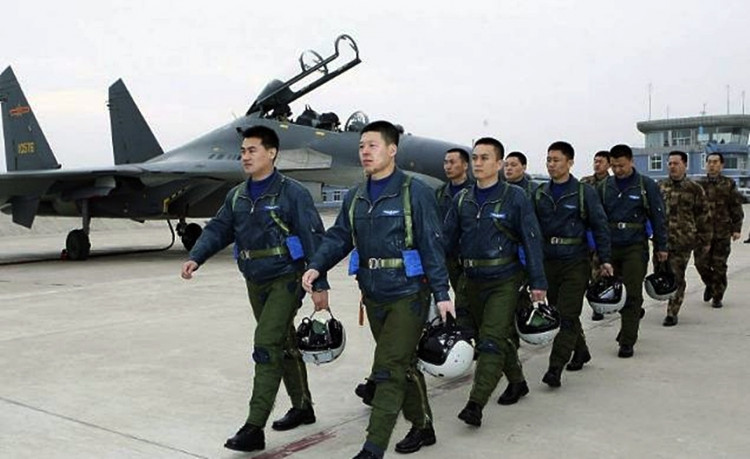China remains uncertain as to how to correctly respond to the United States' recent decision to fund and organize a new "Space Force" to fight a future -- and probably inevitable -- a war in space against China or Russia.
This dichotomy of views surfaced in an op-ed published in one of the websites of the People's Liberation Army (PLA). One faction argues that China needs to build on the capabilities at hand while the other side argues for a more aggressive approach, but one falling short of calling for China to organize its own Space Force.
Space is defined as the area encompassed by Low Earth Orbit (LEO), which is an orbit around the Earth with an altitude of 2,000 km or less above ground level.
Last month, U.S. president Donald Trump directed the Pentagon to organize new "Space Force" as an independent military service branch to maintain and ensure U.S. supremacy in space over the coming decades. The idea for an independent Space Force dates to 2017 when some members of the U.S. House of Representatives led by Mike Rogers (R-AL) began championing the idea of a separate "Space Corps."
Since then, these more hawkish members of Congress have sought to allocate additional money to enhance the military's capability to fight a war in space. The organization of the "Space Corps" favored by Congress is, however, is resisted by the Pentagon, which contends the U.S. Air Force and the other armed services can more than adequately do the job.
Rogers contends that "the future war will take place in the space. We should remain diligent and get a head-start over other countries for our national security."
This comment is being used by Chinese militarists alarmed at the U.S.' dominance of space as an argument to confront the U.S. head-on. One anonymous expert cited by the op-ed said: "it is imperative for China to develop space forces, which will exert significant impact on many aspects."
China's newly formed Strategic Support Force (SSF) has the mission of developing and employing most of the space capabilities possessed by the People's Liberation Army (PLA). Organized only in December 2015, SSF is responsible for the space, cyber and electronic warfare missions of the PLA. China's established the SSF to coordinate the PLA's space and information warfare forces as a joint warfighting force.
The expert contends the creation of the SSF illustrates the high priority the PLA attaches to the "space cause and an increased role of the PLA's space capabilities." He said SSF is unique because of its joint mission to support all the armed services' operations with its space, cyber, and electronic warfare capabilities.
Other hawkish experts believe that an effective integrated air and space combat capability can improve the systematic combat capability of the PLA while deterring the U.S. from harming China-U.S. security relations due to Trump's aggressive space militarization.
They argue China must have the capability and means to defend itself in space against the U.S. The op-ed said China will act according to how the strategic situation plays out but if the U.S. really establishes a Space Force, it "might not be long before China formed a similar force too."





